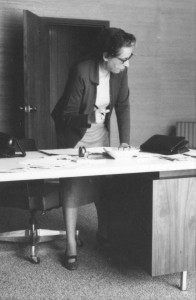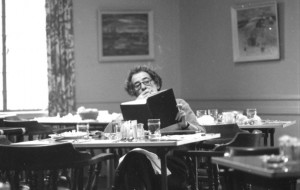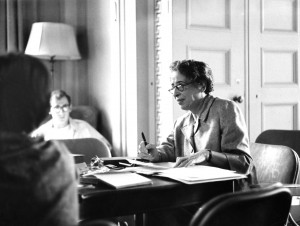This evening kicks off a major conference on political philosopher Hannah Arendt, who was in residence at Wesleyan’s Center for the Humanities 50 years ago. The conference, titled “Exercising Judgment in Ethics, Politics, and the Law: Hannah Arendt’s Eichmann in Jerusalem: A Report on the Banality of Evil, Fifty Years Later,” is organized by Sonali Chakravarti, assistant professor of government; Ethan Kleinberg, director of the Center for the Humanities; and Uli Plass, associate professor of German studies and Center for the Humanities faculty fellow. The first lecture is at 6 pm tonight (Thursday), when Susan Neiman (Director of the Einstein Forum, Potsdam) presents “Philosophy Not History: Reading Eichmann in Jerusalem.” The conference is part of the Center for the Humanities program on Justice and Judgment. I am looking forward to welcoming the many visiting scholars who will be attending, and to participating in their interactions with Wesleyan faculty and students.
Still today we have major questions about how to exercise judgment about massive violations of human rights. What is the role of international law, if there is any, when it comes to “crimes against humanity,” and who will enforce this role? Is there a responsibility to witness, to act, to pass judgment? Or is our role only to protest these transgressions while trying to improve our own country’s international behavior? Taking action clearly involves risks, and inaction provides no safe haven. How do we make these judgments so as to act more justly?
Crimes against humanity have become institutionalized since Arendt wrote her report on evil, but justice has not. Perhaps this conference will help us think more deeply so that we can act more effectively.
[youtube]http://www.youtube.com/watch?v=dsoImQfVsO4[/youtube]
Update
Some photos of professor Arendt at Wesleyan:





